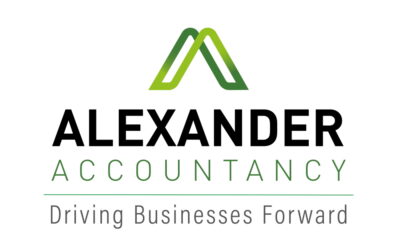
20th June 2017 Posted by - Alexander Accountancy
Playing the numbers game to face the challenges ahead
David Alexander, Senior Partner of Alexander Accountancy, shares his views on some practical considerations.
Now more than ever before all businesses should produce regular financial information to make sure they stay in control.
Having information available on a regular basis and in a timely manner is fundamental to the proactive management of a business. This is when you are best placed to make informed decisions in a positive manner and hopefully help avoid having to take reactive measures after the event.
We keep hearing about Brexit and the challenges this will present, but we should not forget there are other and perhaps more immediate challenges that need to be dealt with.
How will you be affected by the minimum wage legislation?
Although this has been with us for a number of years and is currently £7.50p per hour for over 25’s, successive Governments keep repeating aspirations to increase this to new heights with £10.00p per hour a figure that has been quoted. When employers consider their future wage costs it is not just about the lowest paid employees, they need to factor in the differentials rewarded to more skilled staff and those who take on more responsibility.
If skilled and senior staff see their pay differentials being eroded there is a risk that this could de-motivate them? Possibly removing the incentive for training or putting in the extra effort that some roles require. If you wish to keep the differentials as positive incentives, then this needs to be built in to your future costs?
Have you planned for the additional costs of providing Workplace Pensions?
This year will see the remaining employers that have not yet staged brought in to the auto enrolment pensions legislation. But it is important to remember inclusion is only the start, there are progressive increases planned in employer contributions, and therefore additional wage costs, for the next few years. Until 5th April 2018 employer’s contributions are set at 1% of the employees qualifying salary. From 6th April 2018 this is expected to increase to 2% and from 6th April 2019 a further increase to 3% of the employees qualifying salary.
Once again these are additional costs that should be included in the budgets and financial planning.
What are the practical considerations?
The above examples of minimum wage, pay differentials and workplace pension costs highlight items that are effectively outside the employer’s control. However it is essential that they are taken in to account to understand the effect they will have on profits and cash flow. Employers need to include the additional costs when working out future prices for goods and services, or constructing quotes and tenders.
Depending on Statutory Accounts only gives you a snapshot of one moment in time and may not indicate trends or show the full picture. Identifying trends in advance with the use of budgets and up to date information allows for better control and forward planning. It means positive steps can be taken to correct negative trends before they take hold.
The regular reviewing of data allows informed decisions to be made about what is and is not working in a business, and if changes need to be made. It allows for better cost control to be maintained and can be used to measure the return on investment. Thus indicating where funds should and should not be used.
Having more information available allows for better forward planning and can help maximise any benefits that can be obtained from the timing of expenditure and claiming reliefs.
Having up to date and accurate information can also reduce the cost of having annual work done including preparing the Statutory Accounts, Statistical Returns and Industry Reports.
Making Tax Digital can be an opportunity to help smaller businesses?
Finally I would like to end on a positive note. Making Tax Digital may have been taken out of the Finance Bill as part of dissolving Parliament, but I am sure it is not an end to the subject. If, as expected, it is brought back in the new Parliament then most businesses will be set on a course to produce digital records on a regular basis.
There are many accountants highlighting Making Tax Digital as another burden on small businesses and picking apart the loopholes to make life easier for their clients, but perhaps that is missing an opportunity. If information is produced on a regular basis and clients advised of how they can benefit from it, surely that adds the most value. Making client’s lives better rather than easier, and giving them more tools for dealing with the challenges ahead.
If you would like more information, or if we can help you with any other accounting services. Please email in**@al********************.uk or call Burton upon Trent 01283 743851
*This article was created by David for the Greater Birmingham Chambers of Commerce Chamberlink magazine. June 2017 edition page 42.
